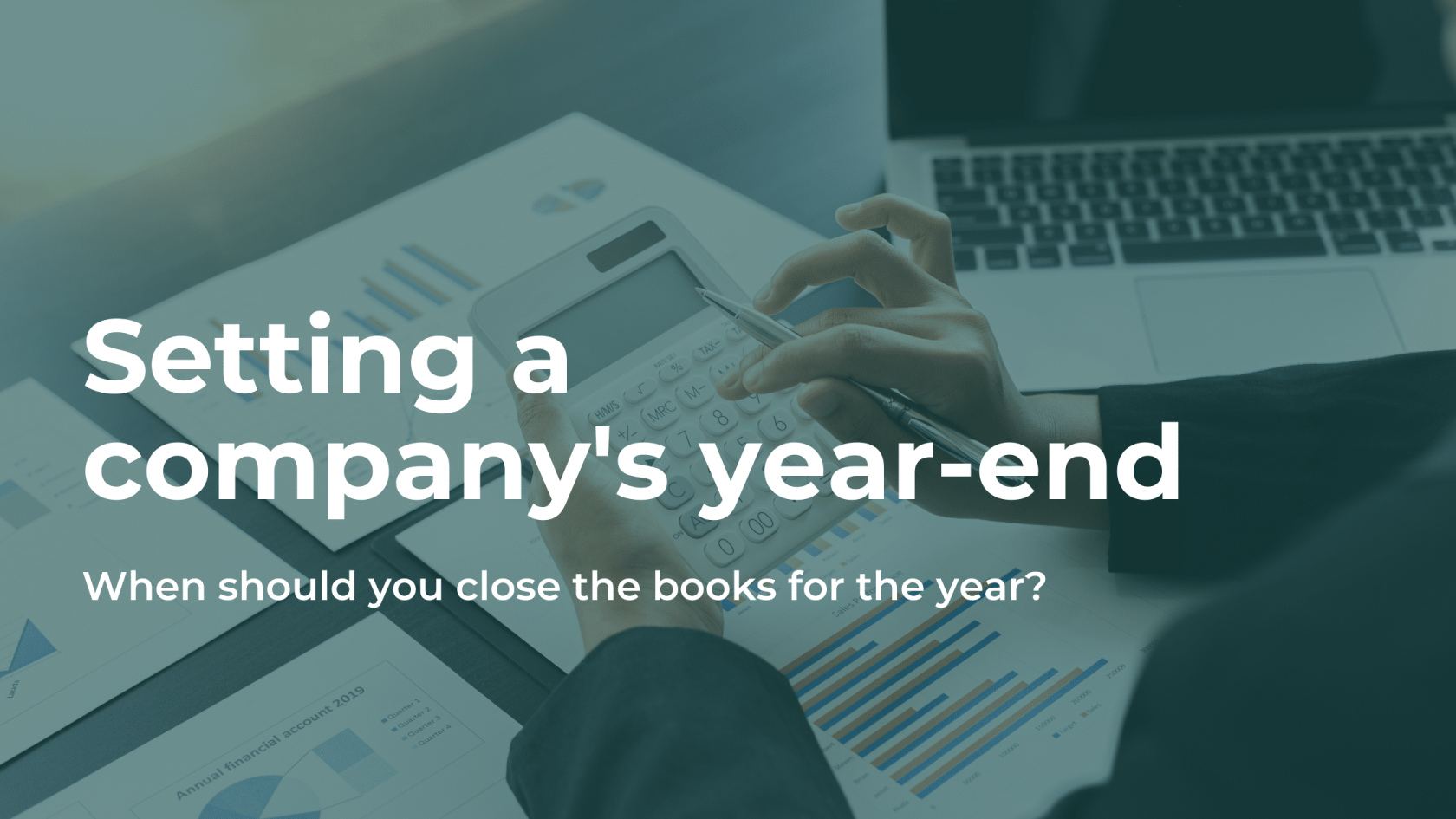Are you contemplating on changing your bookkeeping? It’s the perfect time to consider new plans and strategies for your business.
Learn more about how we can help you navigate your year-end processes.
When starting a new business, when should you close the books for the year? Strategically choosing your tax year-end will result in business and tax benefits. It is crucial for business owners and accountants to collaborate when setting its first year-end. This article will look at various businesses and possible benefits and tax deferrals when setting a year-end.
Who is this for?
-
Start-ups
-
Small Businesses
-
Entrepreneurs and established businesses
Keep reading if you are…
-
Looking to set a date to close the books
-
Interested in determining a date that is best for your business
TLDR: Depending on your company structure, you can choose your year-end, or it will be the calendar year-end (December 31st). If you have a choice, select a year-end that is at the start of the slower season. Try to coincide your year-end with other reporting obligations, such as sales tax reporting and legal filings, batch it together for more efficiency.
Sole proprietors and partnerships
Generally, the strategy for these types of businesses is to end the fiscal year on December 31. Here is why: The deadline for self-employed unincorporated individuals to file their tax returns is June 15. However, the balance due and interest accrues starting from April 30.
Partnerships are required to have December 31 as the year-end.
Corporations
In general, your first-year end date cannot be longer than 53 weeks in terms of CRA, but it can be shorter. The filing of your corporation’s first tax urn establishes a pattern for the end of the fiscal year. At the same time, keep in mind that it is not entirely set and that changes can be requested later; more on that below.
Choosing December 31 as the year-end is natural but may add complications because the tax filing deadline is around the same time as self-employed and individuals. Corporations’ taxes owed are due 3 months after the company’s year-end, for a December 31 year-end that means during the busiest times for accountants. Corporate filing due is 6 months after the company’s year-end.
The most common practice for corporations’ year-end is simply one year after the incorporation date. It may be reasonable to choose a shorter year-end as well, and we’ll talk about the pros and cons below.
It is possible to choose any month and date for the first year-end of the corporation within 371 days since incorporation. But we recommend choosing the last day of the month as year-end to avoid reporting complications. In other words, instead of a July 15th year-end, make the year-end the last day of the month. For this example, July 30th is a better year-end because many other accounting functions normally end at month-end.
Here are some additional points that may help you in making a decision.
New companies, cash-flow needs and tax instalments
Cash availability is very important for running a company, especially for startups. Current rules allow new companies to omit installment payment of taxes until starting the second year of operations. If needing lots of capital and cash flow on hand, it may be beneficial for new companies to select a year-end as far out as possible.
End of a busy period and the beginning of a slow period
This is beneficial for companies that need to perform inventory counts, especially physical counts because it is less disruptive to conduct these activities after the busy season. During the year-end close, with more time on hand, many departments will have extra tasks, which is great when they can complete them on time.
Shorter year-end
One positive for a shorter year-end is to consider a scenario where your company is running break-even until a specific date and expects sales to jump dramatically over the next couple of months. It may help defer taxes for these months of high-volume sales by setting your first fiscal year-end to the date just before the jump in sales.
One downside to a shorter year-end is the pro-rating of the small business deduction. Having a shorter fiscal year-end may result in potentially higher taxes because of the changes to the small business deduction (SBD) rules proposed in the federal Budget 2018. Normally, a company’s business net income for tax purposes limit for a taxation year is $500,000 to apply to the lower tax rate. However, this limit is prorated for the number of days in the year if there are less than 51 weeks in the year [1].
Calendar year-end
Companies who own a lot of passive investments (relative to other parts of the business) may want to use the calendar year-end as it coincides with tax reporting of the investments (which report on the calendar year-end).
End of the quarter or reporting period for GST
Best to align the corporate tax year-end with sales tax period-ends can be at quarter-end periods, like March 31, June 30, and September 30, or December 31, that way it will minimize period-to-period adjustments and calculations plus it is more efficient filing two important accounts at the same time.
Not choosing a quarter-end date can complicate several government filings and possibly confuse readers of the financial statements, like shareholders, because a period-end usually requires many adjustments to happen and also to perform the filing with various government dues and forms.
For tax planning
You can defer the payment of a management bonus for up to 180 days after payment. Let’s assume the company’s year-end date is July 31. This means the company can expense this bonus in say, July of year 1, when it was declared. Tax rules allow actual payment of this bonus in January of year 2. The company gets to reduce it’s net income in year 1 when it was declared. Payroll deductions and remittances will happen in Year 2, when the person receives the bonuses, and hence personal taxes are deferred to Year 2.
When electing a year-end change
After setting your first year-end you can change it to another year-end. However, to caution readers, CRA will want to understand how a year-end change request will benefit your business operations. Reasons for reducing taxes is likely not a reasonable request. Think about some of the other reasons above and the reasons that will benefit your operations. For instance, if your business relies heavily on production or inventory, and the business cycle or season changes, you may want to change your fiscal year-end to this new business cycle. Check with your CPA when thinking about changing your year-end.
Summary
There are lots to consider when choosing your year-end, from the level of business activity, to future cash-flow needs, and to tax planning considerations. The process of year-end involves many stakeholders and if you can take anything away from this article, perhaps it’s better to set a year-end just as your busy season ends and the slow season starts. It does not have to be complex, but talk to your Chartered Professional Accountant to set an optimal year-end.
—-
Written in part by Oksana Gedz
References
[1] CRA. Small business deduction rules, “2. How is the business limit determined?” Source: https://www.canada.ca/en/revenue-agency/programs/about-canada-revenue-agency-cra/federal-government-budgets/budget-2018-equality-growth-strong-middle-class/passive-investment-income/small-business-deduction-rules.html
Did you like this article? Here are some others that might be of interest!




